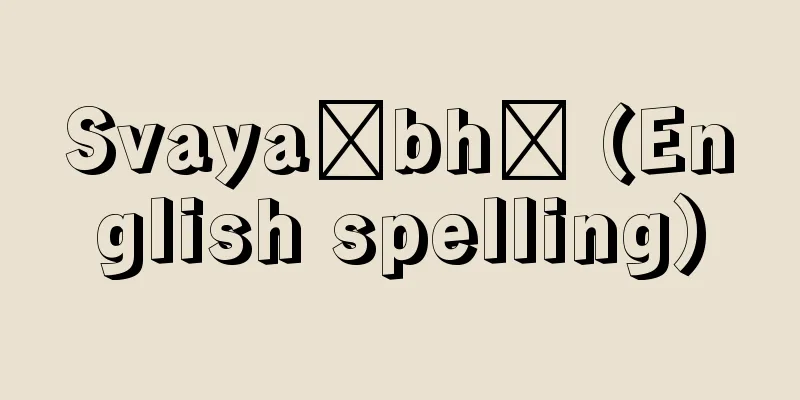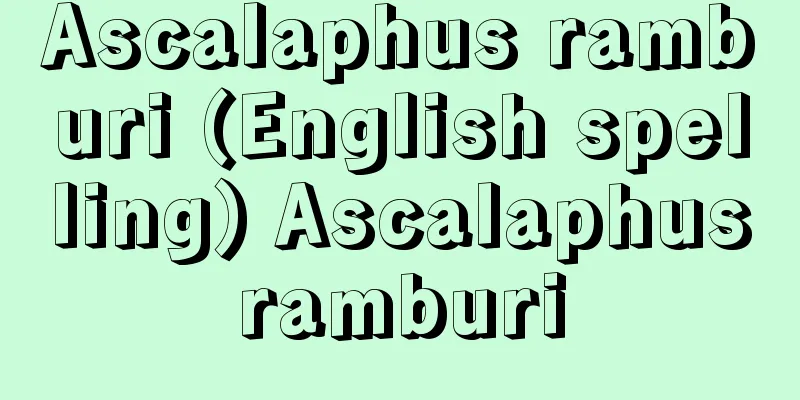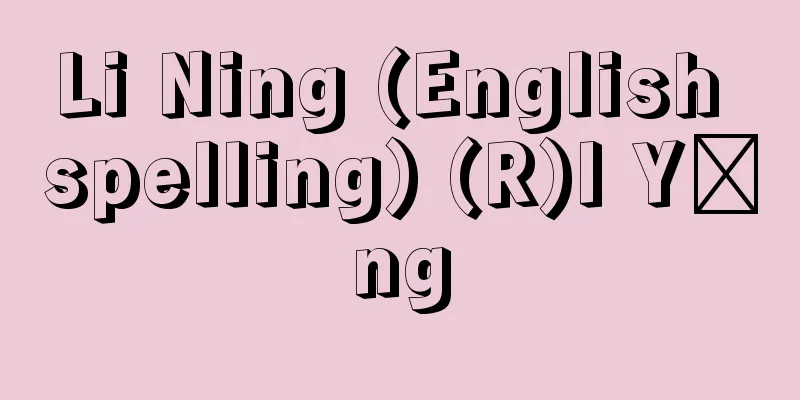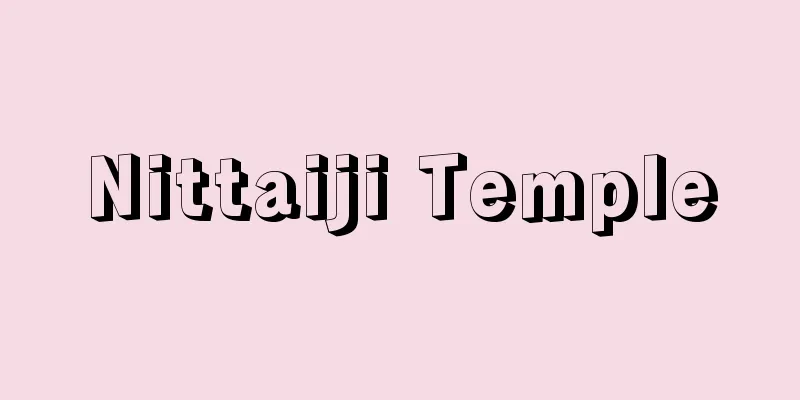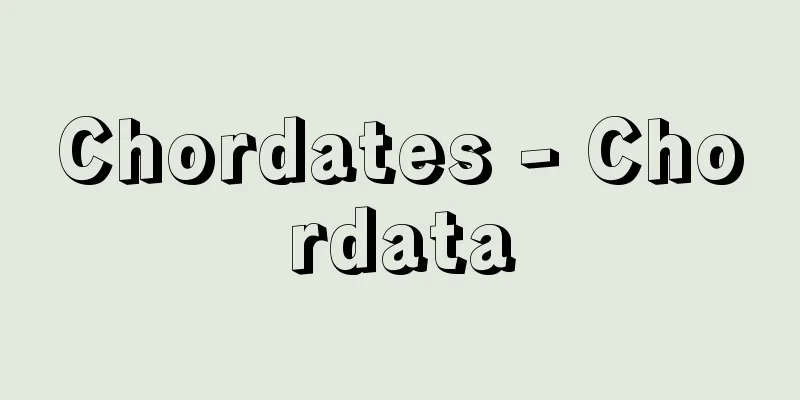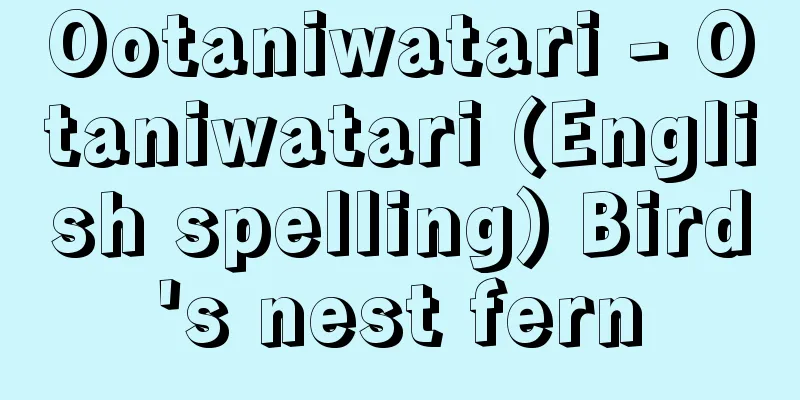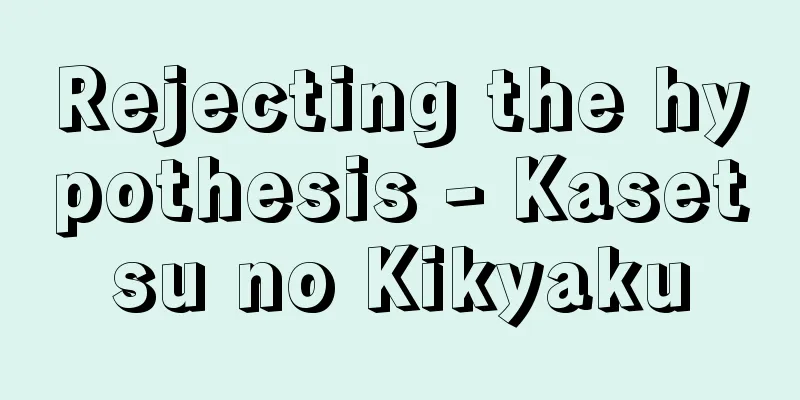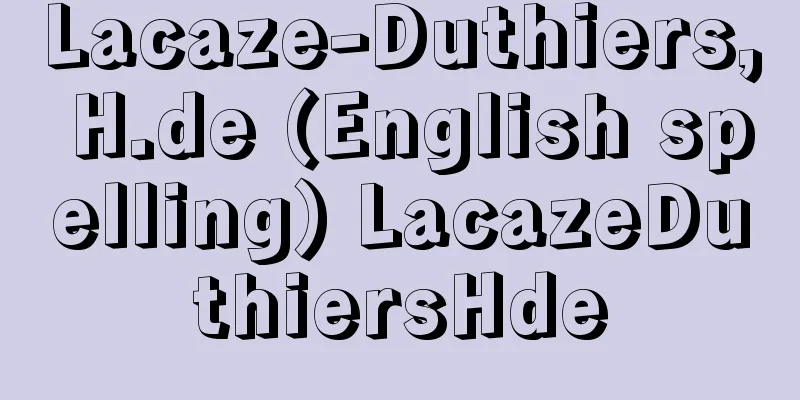Violence - violence
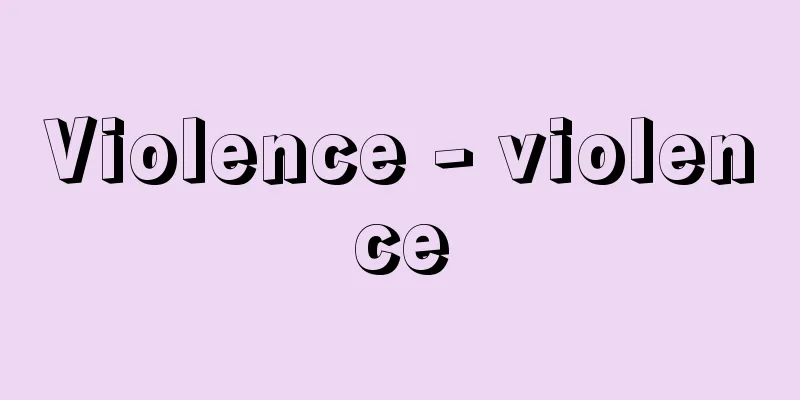
|
Generally, in the political world, physical force that lacks legitimacy and legality is called violence. In contrast, physical force that has legitimacy and legality is called force, but in terms of the direct use of physical force, violence and force are essentially the same. Therefore, in the political world, even if physical force is used legitimately and legally, it often expands through its own movement and exceeds appropriate limits, turning into violence. Violence is considered to be the most effective means for an individual or group to influence the behavior of another individual or group temporarily, but because it can cause physical pain or even deprive the targeted individual or group of their freedom or life, it is difficult to secure continuous voluntary submission from the individual or group. As the saying goes, "Better a ballot than a bullet," violence is generally not relatively effective given its high cost. [Yoshifumi Tanito] The state and violenceEvery state has an apparatus of violence, such as an army or police, as the ultimate means (ultima ratio) to maintain the regime. This is because it is impossible to continue to maintain a particular regime without any apparatus of violence. Also, as Max Weber found the characteristic of a state to be that it "monopolizes the legitimate use of physical coercive force," in modern states, only the government is permitted to use physical coercive force, and other institutions and individuals are permitted to use it only as long as the state approves it. The exclusive ownership and use of violent apparatuses is a characteristic of modern states. From this point of view, it is also possible to view state power as violence itself. Also, within a political system, there are anti-system groups that do not consider the use of physical coercive force by the state to be legitimate or legitimate, and claims of legitimacy and legality can be just a pretext to conceal the privileged rule of a particular group, so physical coercive force always has the nature of violence. [Yoshifumi Tanito] Contemporary politics and violenceHistorically, revolution and war have been typical political phenomena in which violence has emerged, and modern politics cannot be free from these phenomena. Norwegian sociologist Galtung, one of the founders of peace studies, defines war, terrorism, and lynching as direct violence, while poverty, oppression, and racism are structural violence, and states that true peace is liberation from both direct and structural violence. The greatest challenge facing modern politics is to achieve liberation from such violence without resorting to the full range of violent means. [Yoshifumi Tanito] Source: Shogakukan Encyclopedia Nipponica About Encyclopedia Nipponica Information | Legend |
|
一般に、政治の世界においては、正当性と合法性を欠いた物理的強制力を暴力と称している。これに対して、正当性と合法性をもった物理的強制力は実力forceといわれるが、直接的で物理的な力の行使という点において、暴力も実力も実質は同じである。したがって、政治の世界では、正当かつ合法的に物理的強制力が行使されたとしても、それ自身の自己運動によって拡大し、適正な限界を越えて暴力に転化することもしばしばみられるのである。 ある個人や集団が他の個人や集団の行動に影響を及ぼすための手段として、暴力は一時的にはもっとも有効な手段のように考えられるが、対象となる個人や集団に身体的苦痛を与えたり、自由や生命さえも奪うことがあるために、それら個人や集団から継続的に自発的な服従を確保することがむずかしい。「鉄砲の玉(ブレツト)よりは投票用紙(バロツト)のほうがいい」といわれるように、暴力はコストが高くつくわりには、相対的に高い効果を確保できないのが一般的である。 [谷藤悦史] 国家と暴力すべての国家は、体制を維持するための究極的手段(ウルテイマラテイオ)ultima ratioとして、軍隊、警察などの暴力装置を有している。暴力装置をまったく欠いたままで、特定の体制を継続的に維持することは不可能だからである。また、マックス・ウェーバーが、国家の特質を「物理的強制力の正当な行使を独占している」点に求めたように、近代国家では、物理的強制力の行使は政府にだけ認められ、他の制度や個人は国家が承認する限りにおいてのみその行使が認められる。暴力的装置の独占的所有と行使は、近代国家の特質なのである。こうした点から、国家権力それ自体が暴力であるという見方も成立する。また、政治体制の内部においては、国家による物理的な強制力の行使を正当で合法的であると考えない反体制集団が存在していたり、正当性や合法性の主張も特定の集団の特権的支配を隠蔽(いんぺい)するための口実であったりする場合があるため、物理的強制力はつねに暴力という性質をもたざるをえないのである。 [谷藤悦史] 現代政治と暴力歴史的に、暴力が典型的に出現する政治現象は、革命と戦争であったが、現代政治においてもそれらの現象と無縁ではありえない。平和研究の始祖の一人であるノルウェーの社会学者ガルトゥングは、戦争、テロ、リンチなどを直接的暴力、貧困、抑圧、人種差別などを構造的暴力とし、直接的暴力からの解放と構造的暴力からの解放こそが真の平和であると述べる。それら暴力からの解放を暴力という手段を全面的に発動させることなく達成するということが、現代政治に課せられた最大の課題である。 [谷藤悦史] 出典 小学館 日本大百科全書(ニッポニカ)日本大百科全書(ニッポニカ)について 情報 | 凡例 |
<<: Act on the Punishment of Violence, etc.
>>: The debate over whether or not to rebuild Horyu-ji Temple
Recommend
Kashima Shrine
…There are many world fish or world snakes in Sou...
Space Activities Commission - Space Activities Commission
The Space Activities Commission is a council that ...
bulky cargo
…As international trade became more active in the...
Metal electrode
...The surfaces of metal electrodes and carbon el...
Toriuchi ruins - Toriuchi ruins
Located in Kodo, Shinyashiki, Ishikawa-machi, Ishi...
Locusta migratoria (Locusta migratoria)
An insect of the Orthoptera family, Acrididae (ill...
Yunou ruins
This ruin is located in Jyurokucho, Nishi-ku, Fuku...
Eigenvalue - Koyuuchi (English spelling) eigenvalue
For an n-th order square matrix A=(a ij ) whose e...
Ktesias (English spelling)
A Greek historian around 400 BCE. He lived at the ...
Dromaiidae
…a bird of the Dromaiidae family (illustration). ...
Five-tone
〘Noun〙 A theoretical term in gagaku and chanting ....
Stem volume -
…It is the volume of wood, and can be divided int...
Headband (hairstyle) - Kachusha
…Hairpins and ribbons came in their place. During...
Katsuragi Shinto
This Shinto sect was founded in 1786 by the Shingo...
Owani [town] - Owani
A town in Minamitsugaru District, southern Aomori ...
